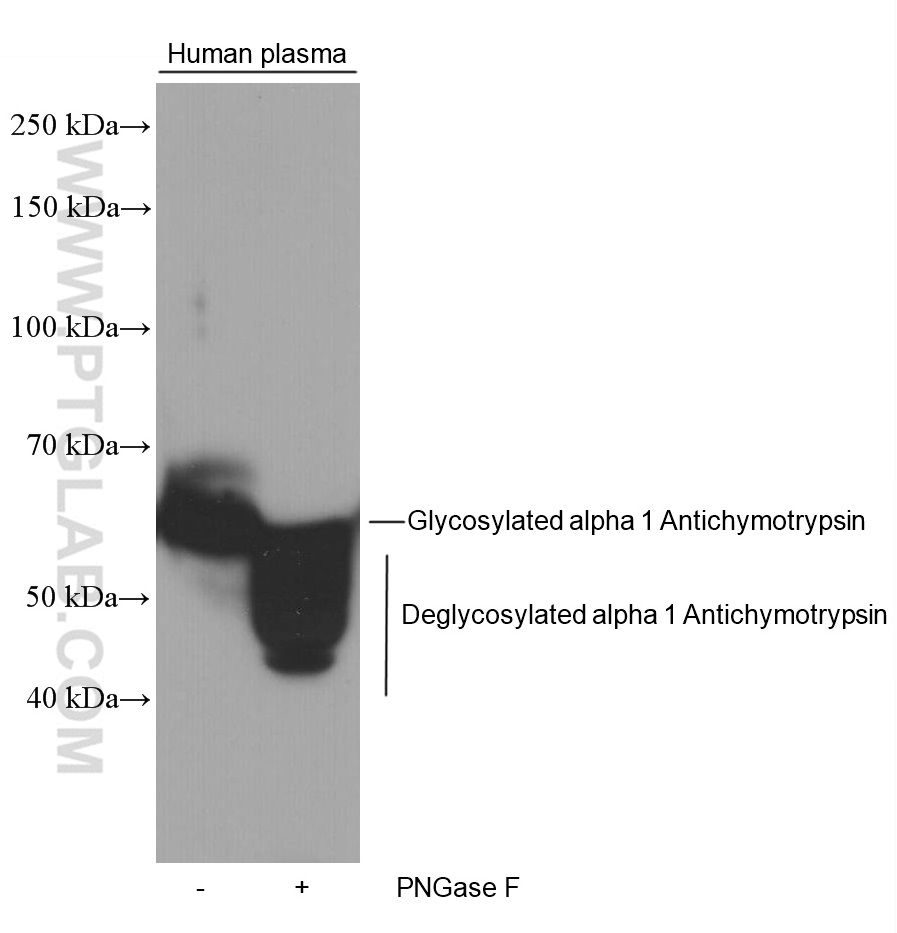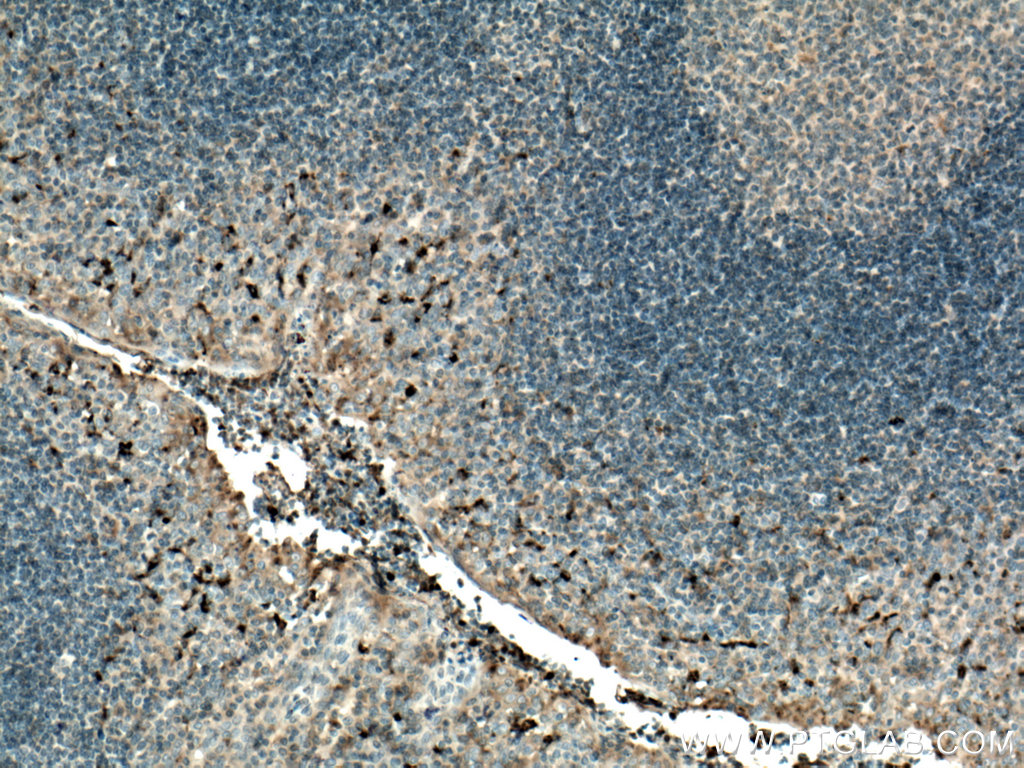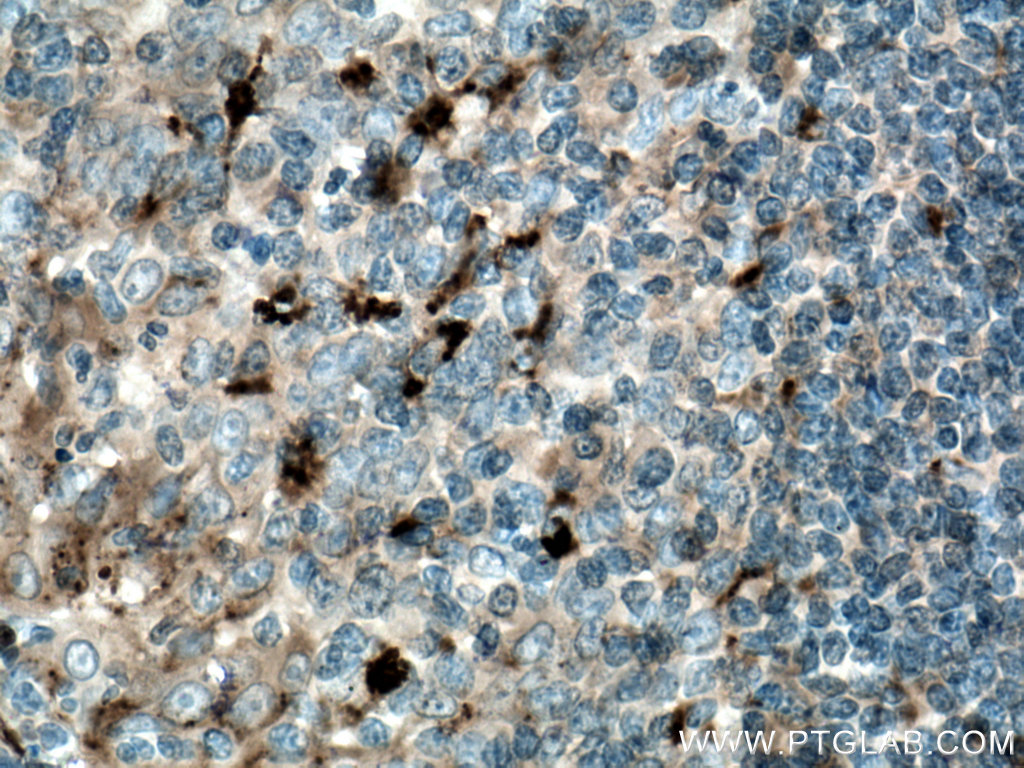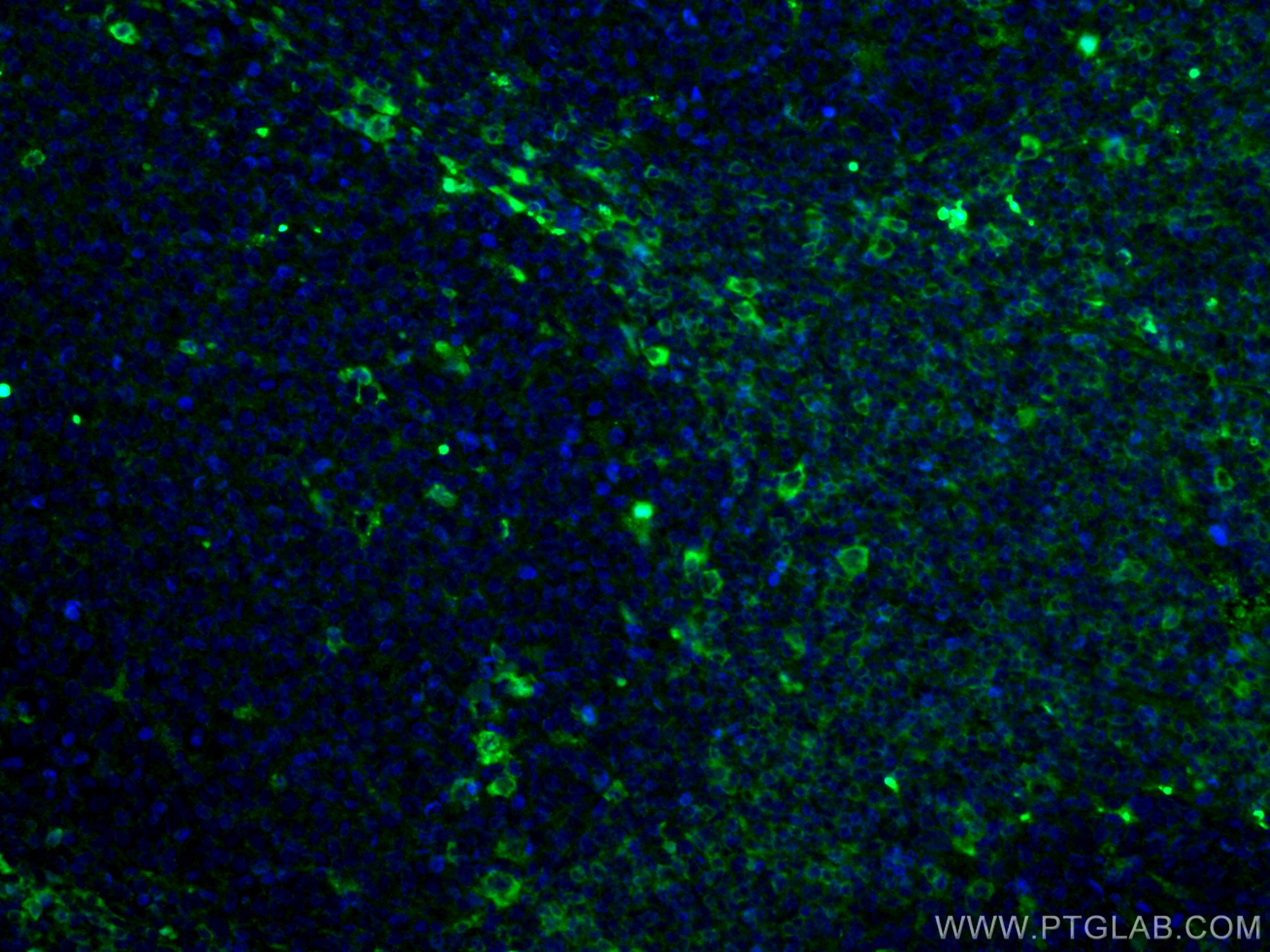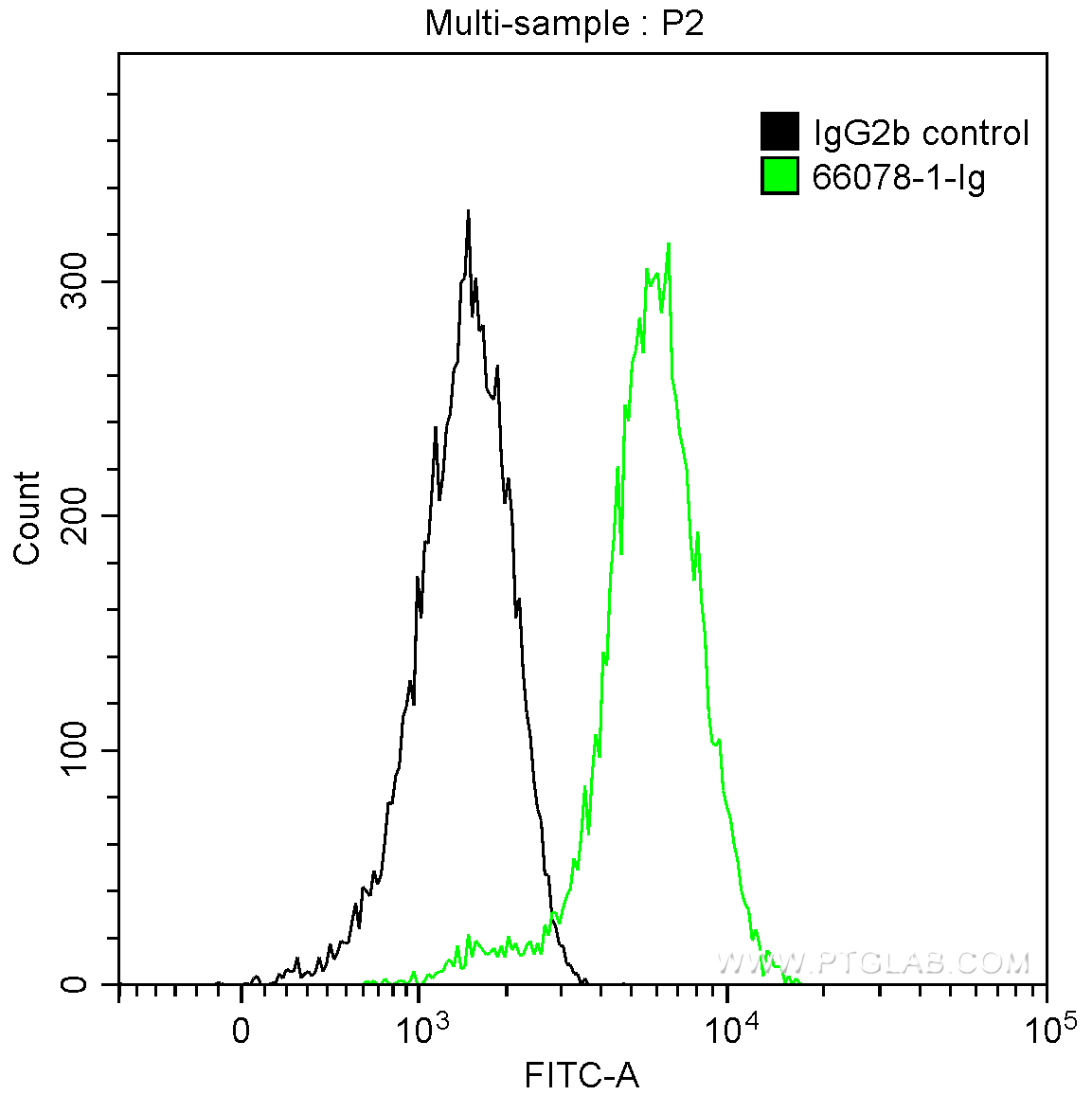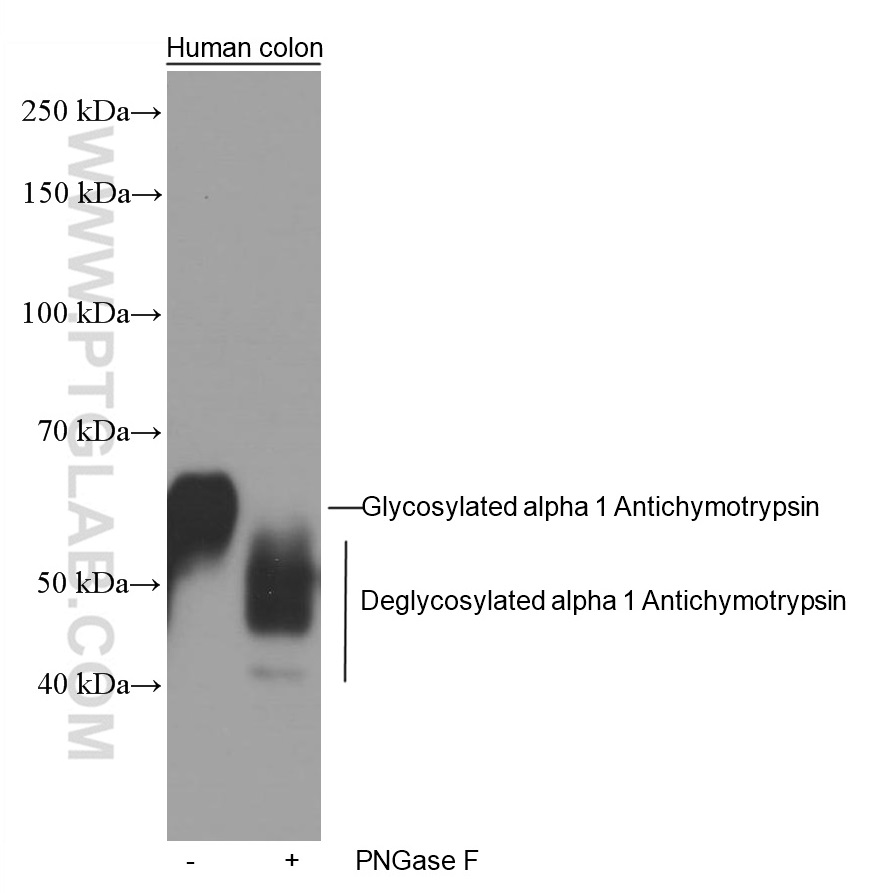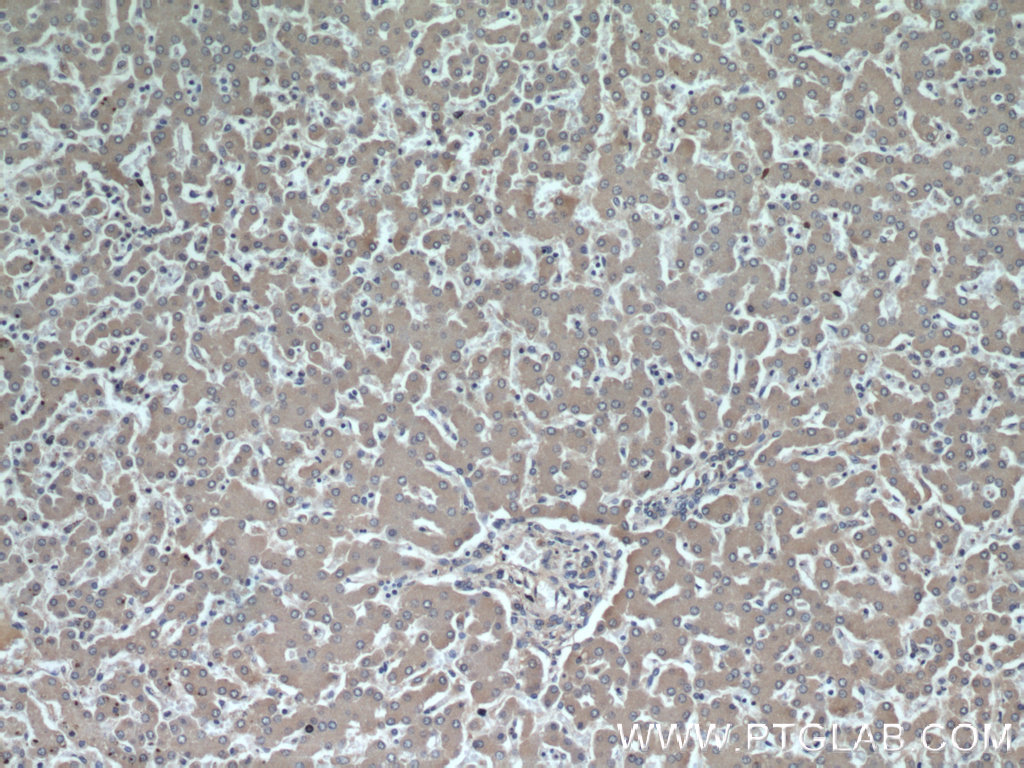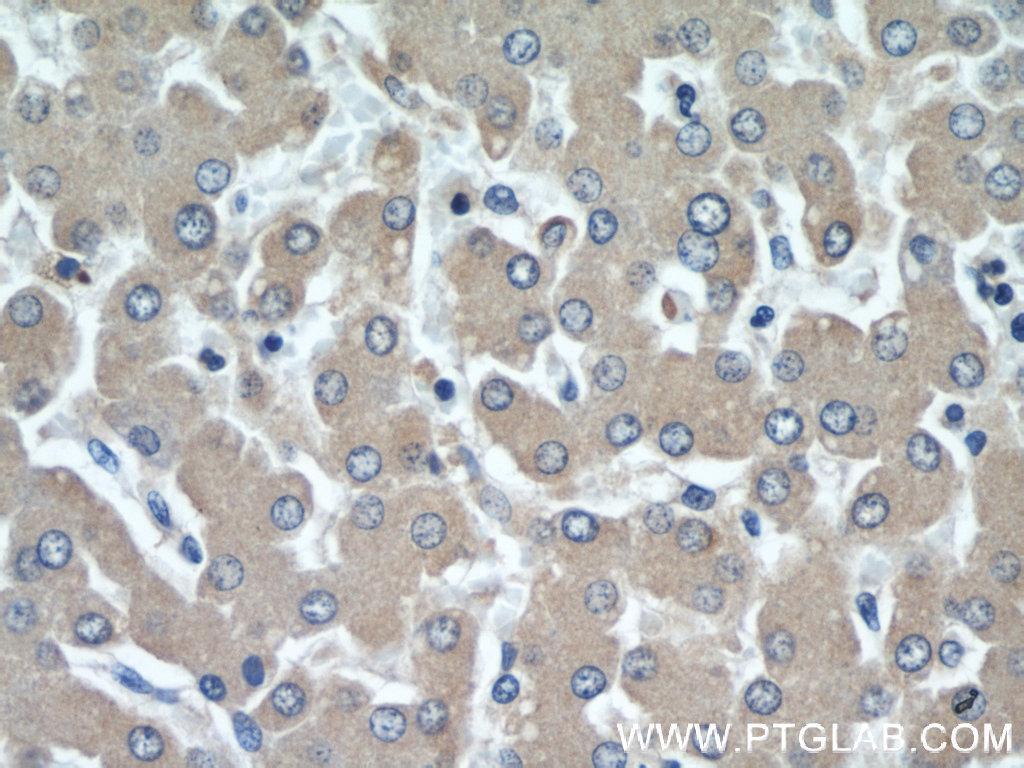Alpha Antichymotrypsin Monoclonal antibody
Alpha Antichymotrypsin Monoclonal Antibody for FC, IF/ICC, IHC, WB,ELISA
Host / Isotype
Mouse / IgG2b
Reactivity
human, pig
Applications
FC, IF/ICC, IHC, WB,ELISA
Conjugate
Unconjugated
CloneNo.
3F2F10
验证数据展示
经过测试的应用
| Positive WB detected in | human plasma, human colon tissue |
| Positive IHC detected in | human tonsillitis tissue, human liver tissue Note: suggested antigen retrieval with TE buffer pH 9.0; (*) Alternatively, antigen retrieval may be performed with citrate buffer pH 6.0 |
| Positive IF detected in | human tonsillitis tissue |
| Positive FC detected in | HepG2 cells |
推荐稀释比
| Application | Dilution |
|---|---|
| Western Blot (WB) | WB : 1:5000-1:50000 |
| Immunohistochemistry (IHC) | IHC : 1:50-1:500 |
| Immunofluorescence (IF) | IF : 1:50-1:500 |
| Flow Cytometry (FC) | FC : 0.20 ug per 10^6 cells in a 100 µl suspension |
| It is recommended that this reagent should be titrated in each testing system to obtain optimal results. | |
| Sample-dependent, Check data in validation data gallery. | |
发表文章中的应用
| WB | See 1 publications below |
| IHC | See 2 publications below |
产品信息
The immunogen of 66078-1-Ig is Alpha Antichymotrypsin Fusion Protein expressed in E. coli.
| Tested Applications | FC, IF/ICC, IHC, WB,ELISA |
| Cited Applications | WB, IHC |
| Tested Reactivity | human, pig |
| Cited Reactivity | human |
| Immunogen | Alpha Antichymotrypsin fusion protein Ag2830 种属同源性预测 |
| Host / Isotype | Mouse / IgG2b |
| Class | Monoclonal |
| Type | Antibody |
| Full Name | serpin peptidase inhibitor, clade A (alpha-1 antiproteinase, antitrypsin), member 3 |
| Synonyms | A1 Antichymotrypsin, A-1-Antichymotrypsin, AACT, ACT, Alpha 1 antichymotrypsin, GIG24, GIG25, Serpin A3, SERPINA3 |
| Calculated Molecular Weight | 448 aa, 48 kDa |
| Observed Molecular Weight | 60 kDa |
| GenBank Accession Number | BC010530 |
| Gene Symbol | SERPINA3 |
| Gene ID (NCBI) | 12 |
| RRID | AB_11182502 |
| Conjugate | Unconjugated |
| Form | Liquid |
| Purification Method | Protein A purification |
| UNIPROT ID | P01011 |
| Storage Buffer | PBS with 0.02% sodium azide and 50% glycerol pH 7.3. |
| Storage Conditions | Store at -20°C. Stable for one year after shipment. Aliquoting is unnecessary for -20oC storage. |
背景介绍
实验方案
| Product Specific Protocols | |
|---|---|
| WB protocol for Alpha Antichymotrypsin antibody 66078-1-Ig | Download protocol |
| IHC protocol for Alpha Antichymotrypsin antibody 66078-1-Ig | Download protocol |
| IF protocol for Alpha Antichymotrypsin antibody 66078-1-Ig | Download protocol |
| FC protocol for Alpha Antichymotrypsin antibody 66078-1-Ig | Download protocol |
| Standard Protocols | |
|---|---|
| Click here to view our Standard Protocols |
发表文章
| Species | Application | Title |
|---|---|---|
Br J Cancer Identification of GlcNAcylated alpha-1-antichymotrypsin as an early biomarker in human non-small-cell lung cancer by quantitative proteomic analysis with two lectins. | ||
Breast Cancer Overexpression of SERPINA3 promotes tumor invasion and migration, epithelial-mesenchymal-transition in triple-negative breast cancer cells. | ||
Pharmaceutics Distribution of Monocarboxylate Transporters in Brain and Choroid Plexus Epithelium |
